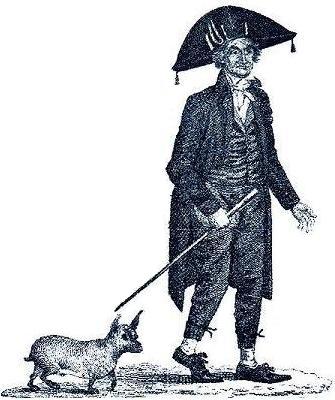
The autobiography of the American eccentric “Lord” Timothy Dexter (1748-1806) contains 8,847 words and no punctuation:
IME the first Lord in the younited States of Americary Now of Newburyport it is the voise of the peopel and I cant Help it and so Let it goue Now as I must be Lord there will foller many more Lords pretty soune for it dont hurt A Cat Nor the mouse Nor the son Nor the water Nor the Eare then goue on all is Easey Now …
When readers complained, he added a page of punctuation marks to the second edition, inviting them to “peper and solt it as thay plese.”
